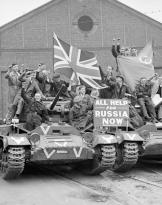Thanks to Russian mediation, in 1912 the Balkan states concluded a series of anti-Turkish agreements. In fact, in March of that year the first agreements were born between Serbia and Bulgaria and subsequently, in May, the latter and Greece. Montenegro then signed agreements with Serbia and Bulgaria in October 1912.
Following these, the Kingdom of Montenegro declared war on the Ottoman Empire and, on 8 October, the First Balkan War broke out. A few days later, the kingdoms of Bulgaria, Serbia and Greece took the field alongside the former, thus giving life to the Balkan League, and extending the conflict to the entire southern area of the Balkans.
In just under two months, the army of the Ottoman Empire suffered a long series of defeats at the hands of coalition forces.
The League thus conquered almost all of the Ottoman possessions in the Balkan peninsula. On 3 December of the same year, a first armistice was concluded, which was followed by the London Conference, starting from 17 December.
The peace conditions, however, were deemed unacceptable by the Ottoman Empire and hostilities resumed on 3 February 1913. The clashes continued until the drafting of a new armistice, established on 24 April 1913. With the mediation of the main European powers, on 30 May 1913 the Treaty of London was finally signed, ending the war.
The Ottoman Empire lost almost all of its European territories and the latter were divided among the states of the Balkan League. The disagreements regarding the division of the Macedonian region, however, caused friction and conflicts between the coalition parties, which then resulted in the Second Balkan War. The conflict lasted about two months and ended in July 1913.
 The London Conference, following specific and pressing requests from Austria-Hungary in this sense, denied Serbia the access to the sea that it had strongly requested. On the other hand, France and Russia worked so that Serbia itself was granted control of Macedonia and Kosovo, while the Peć region1, traditionally included in Kosovo, was entrusted to Montenegro.
The London Conference, following specific and pressing requests from Austria-Hungary in this sense, denied Serbia the access to the sea that it had strongly requested. On the other hand, France and Russia worked so that Serbia itself was granted control of Macedonia and Kosovo, while the Peć region1, traditionally included in Kosovo, was entrusted to Montenegro.
Another important consequence of the First Balkan War was the independence of Albania, declared during hostilities on 28 November 1912 by some political leaders of the country who feared its partition. Independence was recognized internationally the following year by the Treaty of London.
The winners of the war were reluctant to recognize Albanian independence and a part of the territories populated by ethnic Albanians, including Kosovo, remained excluded from the new state.
The post-war period brought with it oppressive nationalization policies and violent attempts at political and cultural assimilation in most of the conquered territories.
For example, in the Kingdom of Serbia, the freedoms of association, assembly and press guaranteed by the 1903 Constitution were not extended to the new territories. The population of those areas was also deprived of political rights in order to avoid possible interference by "non- Serbs” in national politics.
Serbia's acquisition of Kosovo was controversial even in Belgrade itself. Some opposition newspapers, such as Radicke Novine, they highlighted how the “new Serbs” had had greater political rights under the Ottoman Empire.
 There were multiple cases of clashes and destruction of buildings, schools, baths and mosques of Ottoman origin. In October and November 1913, British vice-consuls reported systematic intimidation, arbitrary detentions, beatings, sexual violence, village burnings, and massacres by Serbs in annexed areas.
There were multiple cases of clashes and destruction of buildings, schools, baths and mosques of Ottoman origin. In October and November 1913, British vice-consuls reported systematic intimidation, arbitrary detentions, beatings, sexual violence, village burnings, and massacres by Serbs in annexed areas.
In conclusion, the Belgrade authorities offered no support to the Carnegie Commission2, an international commission composed of university professors and other prominent personalities from France, Great Britain, the United States, Germany, Austria and Russia. Among the illustrious members of the Commission, known for its impartiality, there were three Nobel Prize winners.
In 1914 the "Report of the International Commission to Investigate the Causes and Conduct of the Balkan Wars" was drawn up (Report of the International Commission to Inquire into the Causes and Conduct of the Balkan Wars), i.e. a document published in Washington DC by Carnegie Endowment for International Peace.
In fact, the Commission went to the participating countries at the beginning of August 1913 and remained there until the end of September. After returning to Paris, all the material was processed and released in the form of a detailed report.
The report describes numerous violations of international conventions and war crimes committed during the two Balkan Wars3.
Read: "Kosovo (part one): a history spanning millennia"
Read "Kosovo (second part): the Ottoman Empire"
Read: "Kosovo (fourth part): the First World War and the Kingdom of Yugoslavia"
Read: "Kosovo (fifth part): Socialist Yugoslavia and the Pristina Spring"
Read: "Kosovo (sixth part): towards conflict"
1 City in western Kosovo
2 Carnegie Report, The Serbian Army during the Second Balkan War; The Sleepwalkers, C. Clark, pp. 42-45
3 M. Levene, Through a Glass Darkly: The Resurrection of Religious Fanaticism as First Cause of Ottoman Catastrophe, in Journal of Genocide Research, vol. 22, no. 4, 01/10/2020, pp. 553–560












